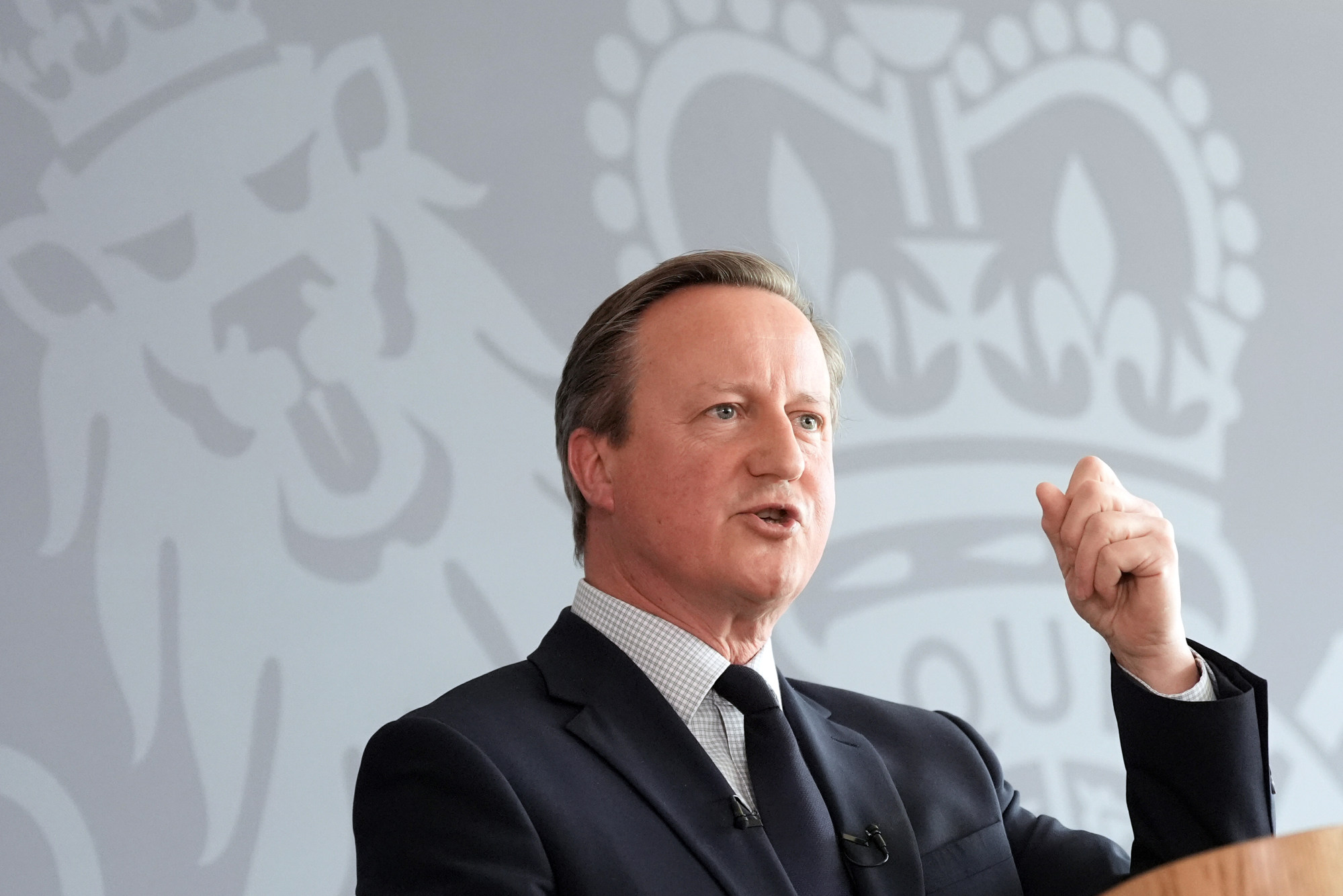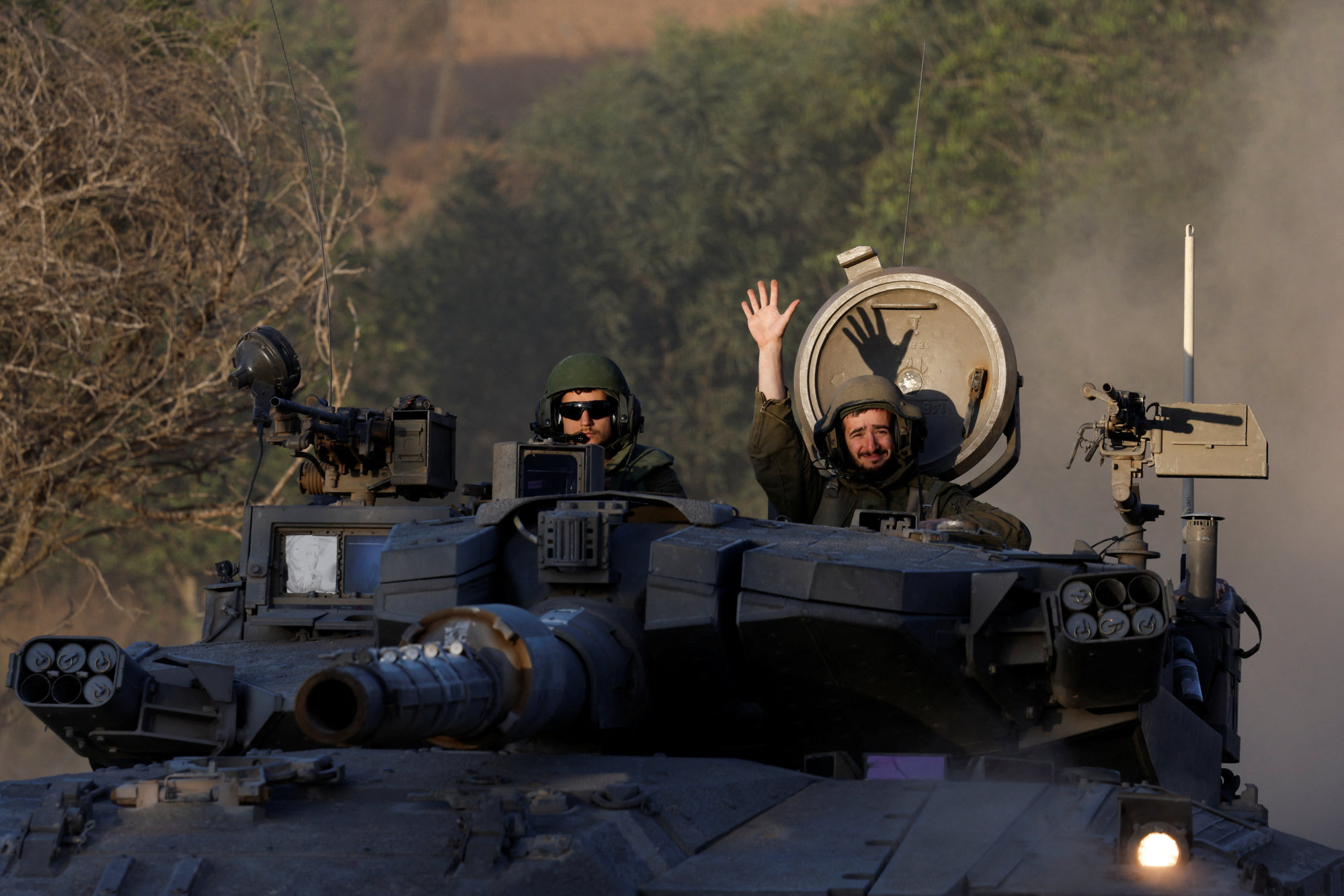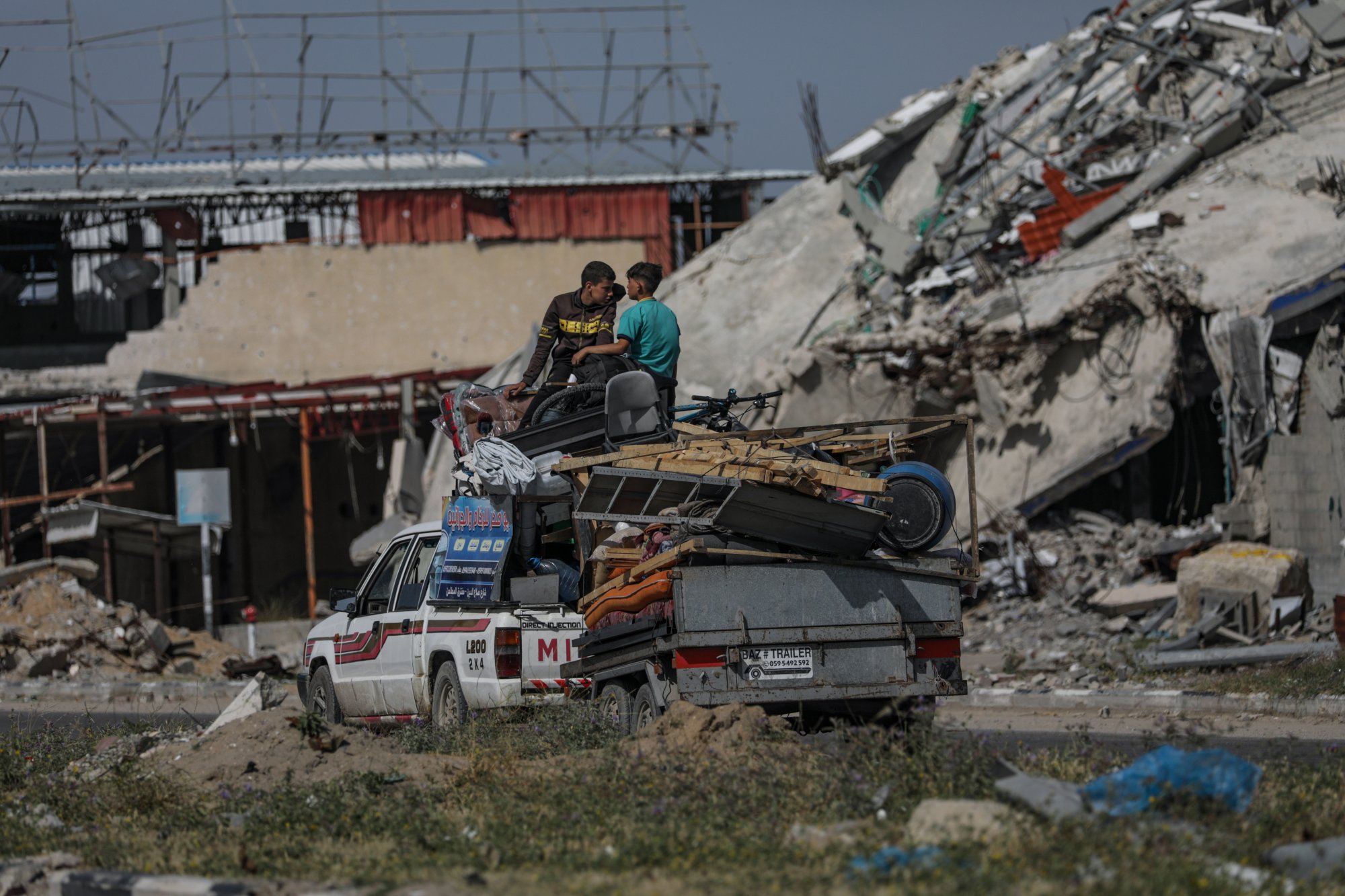Following an exchange for Palestinian prisoners from Israeli jails, it was believed until recently that 132 of them were still being held in Gaza. However, it is now assumed that many of them are no longer alive.
Meanwhile, the Israeli military said on Sunday it had opened a new humanitarian aid crossing into Gaza in coordination with the United States.
The crossing, called ‘Western Erez, was opened in northern Gaza to transfer humanitarian aid, the military said in a statement.

Britain’s opposition Labour Party and human rights groups argue that the UK should follow a similar position and stop the sale of British-made weapons or components in a Rafah offensive.

The US government said on Friday that Israel’s use of US-provided weapons in Gaza probably violated international humanitarian law. But it added that wartime conditions prevented US officials from determining that for certain in specific air strikes.
Cameron also said putting British boots on the ground in Gaza as part of international efforts to deliver aid would be “a risk that we shouldn’t take”.
His comments came after reports that UK authorities were considering deploying troops to land humanitarian supplies from a temporary pier being built by the US military.
Cameron said that his government’s view was that “actually putting British boots on to the beach was not a good move”. He said that instead, the aid delivery will most likely be carried out by a contractor.
US Secretary of State Antony Blinken on Sunday said Israel lacked a “credible plan” to protect some 1.4 million Palestinian civilians in Rafah and warned an Israeli attack could create an insurgency by failing to kill all Hamas fighters in the southern Gazan city.
“Israel is on a trajectory potentially to inherit an insurgency with many armed Hamas fighters left or if it leaves a vacuum filled by chaos, filled by anarchy and probably refilled by Hamas,” Blinken said on NBC’s Meet the Press programme.
Hamas fighters, he said, already are returning to areas of northern Gaza that Israel claimed to have cleared.
We have the same objectives as Israel. We want to make sure that Hamas cannot govern Gaza again
Israel’s planned invasion of Rafah has helped fuel the deepest tensions in relations between Israel and its main ally in generations.
NBC and CBS News broadcast interviews with Blinken dominated by US President Joe Biden’s decision to pause a shipment to Israel of bombs over fears of massive civilian casualties in Rafah and a State Department report that Israel’s use of US-supplied arms may have broken international law.
The report, which was unrelated to the bomb shipment, found no specific violations justifying withholding US military aid, saying the chaos of war prevented verification of individual alleged breaches.
Hamas’ use of civilian infrastructure and tunnels “makes it very difficult to determine, particularly in the midst of war”, what happened in specific instances, Blinken said, defending the report criticised by some Democrats and human rights groups.
Defending the pause on the shipment of 3,500 2,000-pound and 500-pound bombs, Blinken said Israel lacked a “credible plan” to protect civilians sheltering in Rafah.
He told CBS that the shipment was the only US weapons package being withheld.
But that could change, he said, if Israel launches a full-scale attack on Rafah, which Israel says it plans to invade to root out entrenched Hamas fighters.

If Israel “launches this major military operation to Rafah, then there are certain systems that we’re not going to be supporting and supplying for that operation”, said Blinken.
Israel needs to “have a clear, credible plan to protect civilians, which we haven’t seen”, he said.
Israel also has not developed a post-war plan for the security, governance and reconstruction of Gaza, Blinken said, adding on CBS that the United States is working with Arab governments and others on such a plan.
“We have the same objectives as Israel,” he said. “We want to make sure that Hamas cannot govern Gaza again.”
Additional reporting by Associated Press, Reuters

